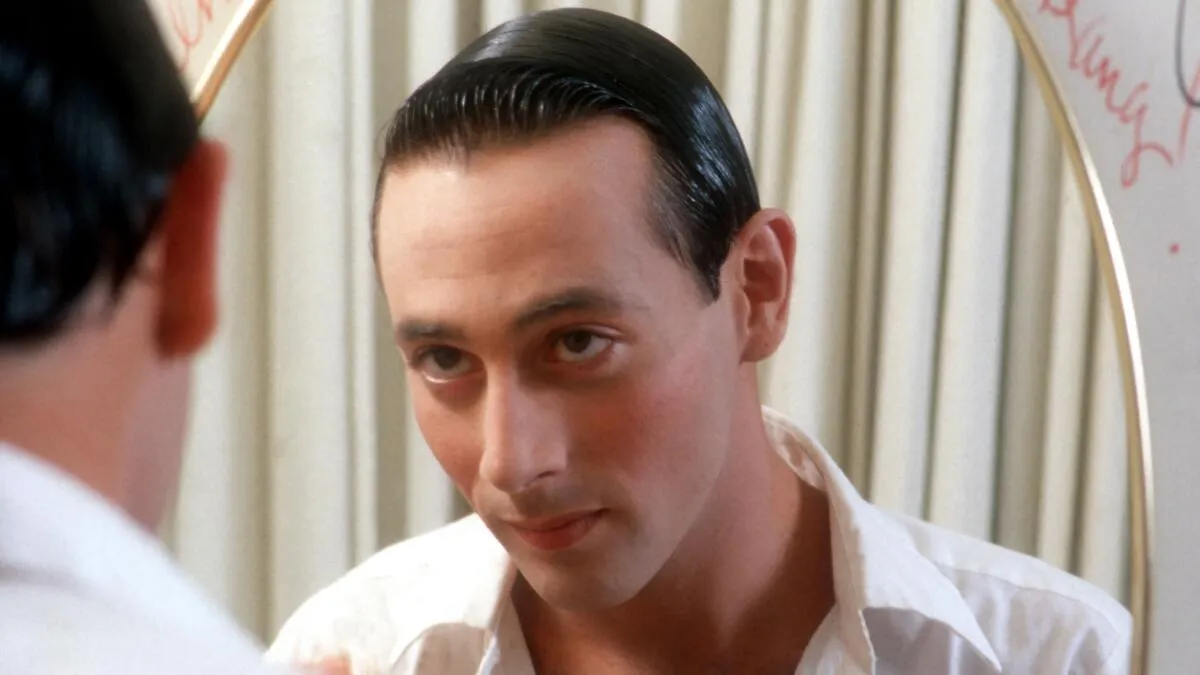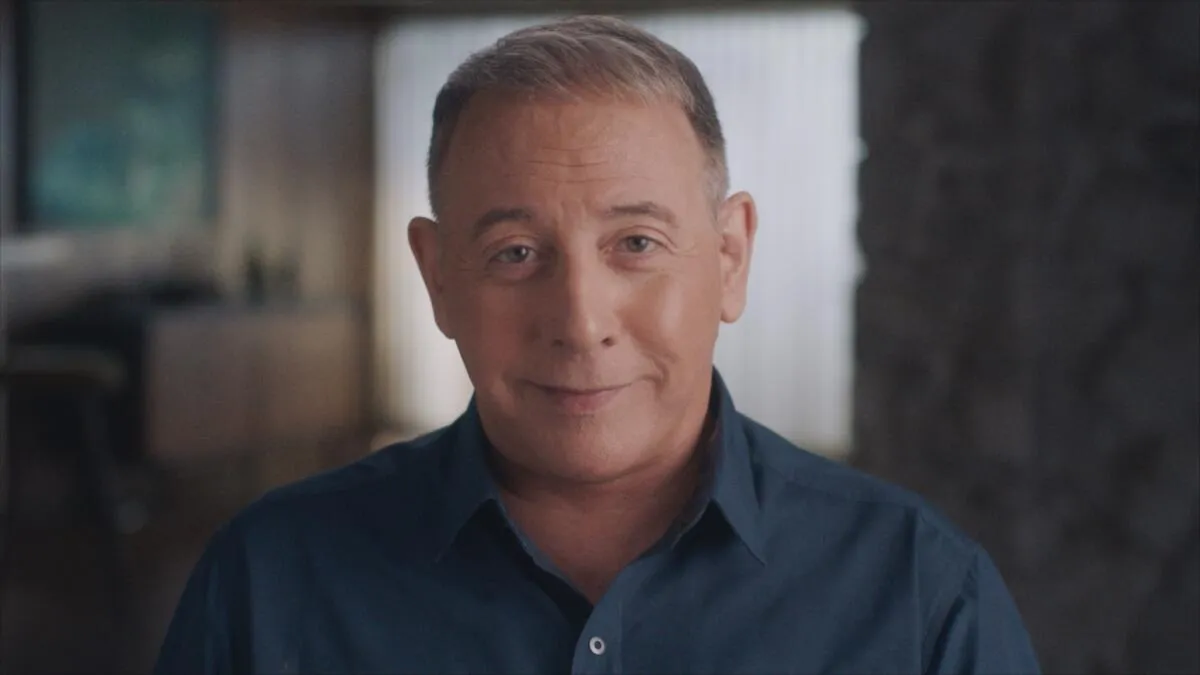HBO’s two-part documentary Pee-wee as Himself arrives like a confessional stained glass, refracting Paul Reubens’ life through interviews and vintage footage. Directed by Matt Wolf, it premiered May 23, 2025, on HBO Max, and sets out to pry apart the man and the myth. Reubens, clad perpetually in Pee-wee garb, occupies both subject and specter, teasing us with fragments of childhood wonder—his obsession with Howdy Doody and hothouse dreams of television worlds.
From Groundlings stages to the riotous kaleidoscope of Pee-wee’s Playhouse, his ascent unfolds in playful vignettes, each bearing the imprint of a man who crafted his own mythos. Underneath the polka-dotted bow tie and squeaky voice lies a restless soul, wary of another’s pen steering his narrative.
Wolf’s film aims to lay bare that tension: entertainer versus autobiographer. It welcomes us into four hours of candid conversation, archival stills and whispered audio recorded on the eve of Reubens’ death, inviting an affectionate yet unflinching gaze at an artist long hidden behind a painted grin.
Narrative Structure and Thematic Focus – “Chronicles of an Alter Ego”
The documentary unfolds in two movements. Part 1 tracks Reubens’ early fascination with children’s television—his confession, “I wanted to jump into my TV and live in that world”—and his avant-garde apprenticeship at CalArts and the Groundlings. We witness the creation of Pee-wee, that impish man-child, first on underground stages, then in an HBO special that catapulted him into a neon-soaked mainstream. Tim Burton’s Pee-wee’s Big Adventure follows, its whimsical absurdity masking Reubens’ unease at relinquishing creative reins.
Part 2 pivots to Pee-wee’s Playhouse, a riot of color and subversion, then darker currents: the 1991 indecency arrest, a false child-pornography allegation, and the erosion of anonymity that devastated him. Wolf interweaves flashbacks—16 mm home movies of a young Reubens experimenting with identity—and contemporary interviews that tremble with regret and defiance. A haunting audio clip recorded a day before his death surfaces, framing the film’s final arc with elegiac resonance.
At the heart lies a trilogy of questions: Who authors our story? Where does Paul end and Pee-wee begin? And can resilience thrive after very public unraveling? Pacing oscillates between buoyant anecdotes—Reubens’ triumph on Letterman—and moments of brittle confession, such as his admission, “My plan was to make people think Pee-wee Herman was real.” This cadence forces us to inhabit his uncertainty, feeling each shift in tone as the director yields to the subject’s own choreography of revelation.
Character Portrait and Interview Dynamics – “Fencing With the Self”
Reubens emerges here as a kaleidoscope of contradictions: playful yet defensive, revealing yet retreating. On camera he toys with Wolf, volleying barbed asides in character, then undercuts them with a vulnerable Paul-voice confession. Archival photographs—wartime snapshots from steamboat lore (a mischievous in-joke)—and Gong Show clips flesh out his trajectory.
Moments of rapture collide with shards of pain: his joy at Playhouse’s inclusivity gives way to anguish over shards of public scorn. When he first admits his sexuality on camera, the moment feels seismic, as if Paul and Pee-wee grapple for dominance in the same body. The revelation of his six-year secret struggle with blood cancer brings quiet gravity; we sense the weight behind the twinkle of his eyes.
Family members and Groundlings peers drift in and out, their impressions illuminating facets of the man, yet never tilting this into a puff piece. Instead, their voices become counterpoint to Reubens’ own, underscoring his ambivalence toward fame and intimacy.
The writer should weave direct quotes—his self-mocking, “I think if you don’t agree with me then you’re wrong”—with textured descriptions of the setting: a studio strewn with Pee-wee memorabilia or a silent garden where his final audio was captured.
Style, Cinematography, and Production Design – “Celluloid Dreams and Haunted Frames”
Wolf’s direction moves with a subtle touch: at times he dissolves into the background, allowing Reubens’ guarded candor to take center stage; elsewhere he punctuates conflict with playful framing—half the screen in childhood footage, half in stark interview light. Editing stitches interviews to archival clips so that memory bleeds into present confession.
Visually, the film contrasts grainy 8 mm home movies—hints of an androgynous young actor testing identities—with crisp HD shots of Reubens in vibrant press junkets. Archival Playhouse sequences glow in primary hues, a deliberate palette recalling children’s fantasies, while somber ambient soundtracks underscore moments of regret. Musical cues flit between toy-box chimes and muted cello, mirroring shifts in mood.
Production design reanimates artifacts—Pee-wee’s bow tie, a box of vintage erotica—into talismans of identity, each object echoing the theme of performance as survival. The two-part structure feels intentionally balanced: roughly 100 minutes each, yet each segment races by, propelled by thematic resonance rather than strict chronology.
In every frame, aesthetic choices—color saturation, montage tempo, the interplay of light and shadow—reinforce this: memory and performance are inseparable, and the man beneath the collar is forever haunted by the mask he fashioned.
Pee-wee as Himself premiered on HBO and Max on May 23, 2025.
Full Credits
Director: Matt Wolf
Writers: Matt Wolf
Producers: Emma Tillinger Koskoff
Executive Producers: Matt Wolf, Josh Safdie, Benny Safdie, Ronald Bronstein, Eli Bush, Candace Tomarken, Kyle Martin, Nancy Abraham, Lisa Heller, Sara Rodriguez
Cast: Paul Reubens (as himself), with appearances by Tim Burton, Judd Apatow, Laurence Fishburne, and others
Director of Photography (Cinematographer): David Paul Jacobson
Editor: Damian Rodriguez
Composers: Jon Brion, Michael Penn
The Review
Pee-wee as Himself Season 1
Pee-wee as Himself offers a haunting exploration of identity and performance, peeling back the layers of Paul Reubens’ alter ego with poetic grace and philosophical depth. Wolf’s blending of archival joy and raw confession captures both the laughter and the scars of a man who lived inside a costume—and finally dared to step out.
PROS
- Evocative dive into Reubens’ dual identity
- Lush archival footage that feels alive
- Candid interviews reveal hidden vulnerabilities
- Thoughtful pacing that balances whimsy with weight
- Cinematic style underscores themes of memory and performance
CONS
- Rhythm can stall during heavier confession segments
- Reliance on Reubens’ voice means fewer outside perspectives
- Scandal coverage sometimes feels filtered through secondhand accounts
- Four-hour runtime may test casual viewers
- Moments of playful banter occasionally undercut emotional beats















































